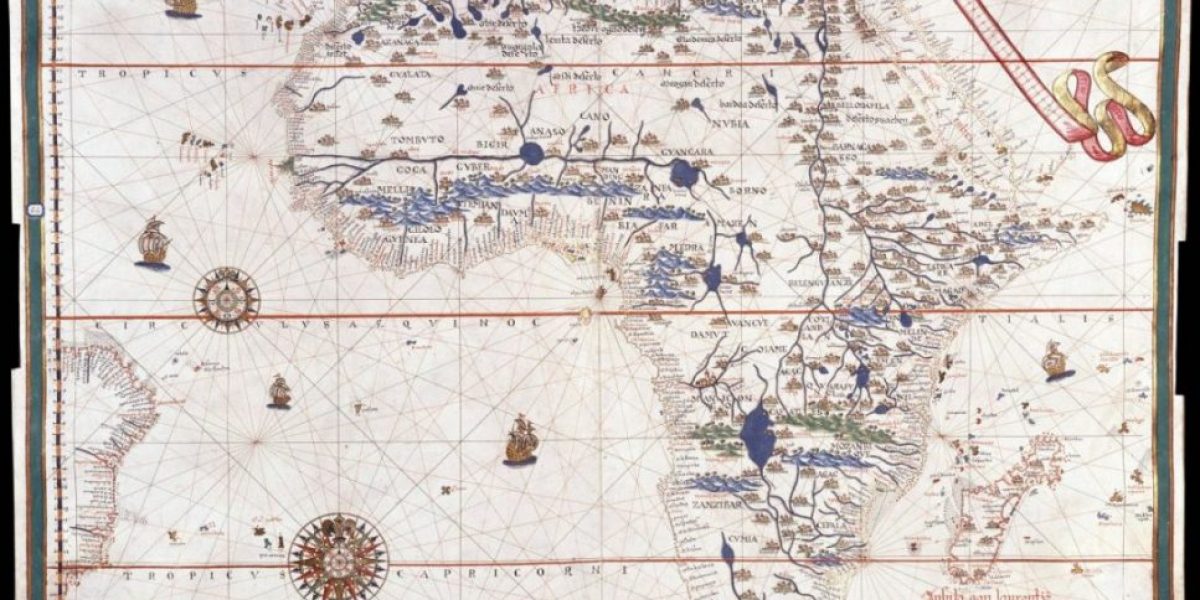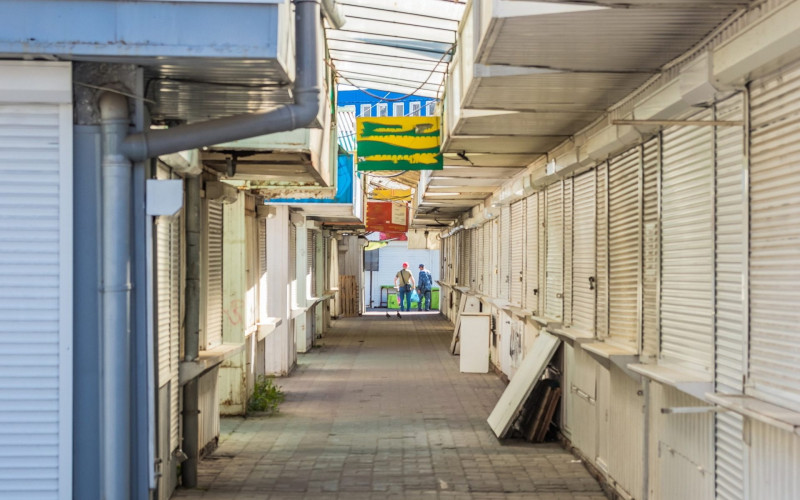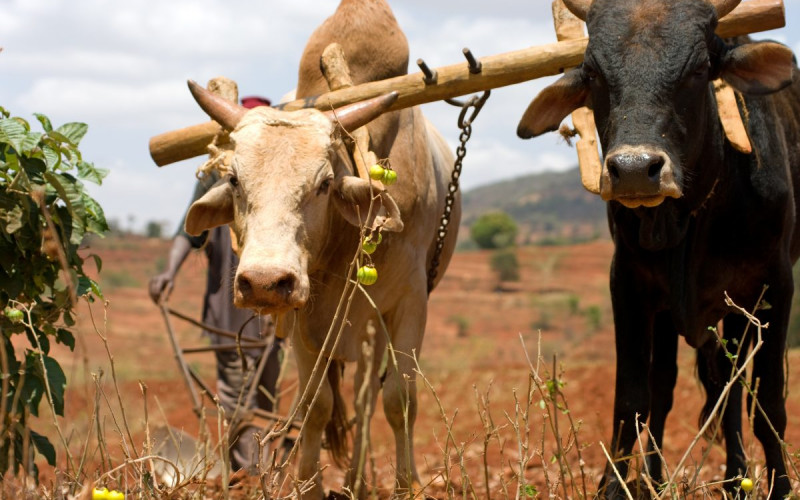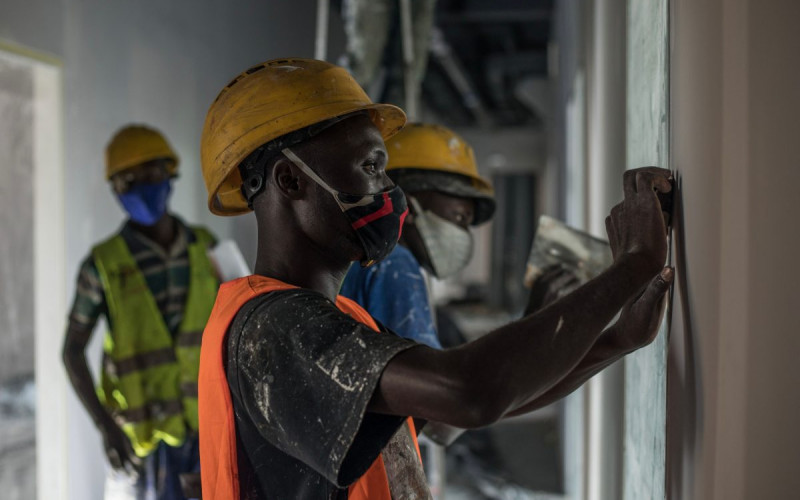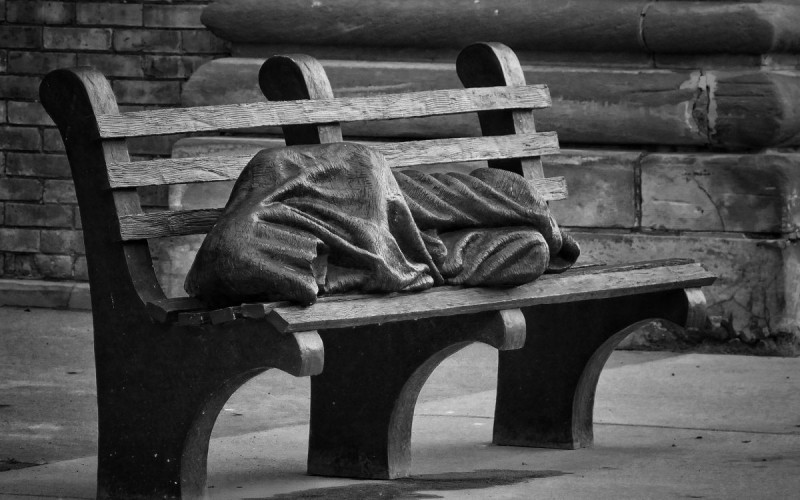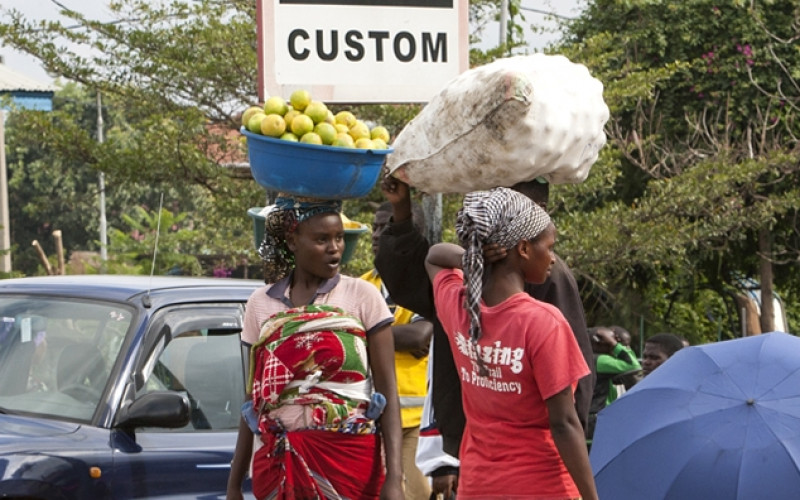The World Bank and the International Monetary Fund who have become Sub-Saharan Africa’s fairy godmother and godfather respectively, every year churn out statistics that tell the same tale – Africans are poor and in many instances have fallen so far down it is difficult to imagine them getting poorer. With poverty and growing impoverishment go conflicts over scarce and shrinking resources. Hence Sub-Saharan Africa’s apparently never ending cycle of violent conflicts.
In its seminal study, Can African Claim the 21st Century?, the World Bank made the following observations about Sub-Saharan Africa (1): “Despite gains in the second half of the 1990s, Sub-Saharan Africa (Africa) enters the 21st century with many of the world’s poorest countries. Average per capita income is lower than at the end of the 1960s. Incomes, assets, and access to essential services are unequally distributed. And the region contains a growing share of the world’s absolute poor, who have little power to influence the allocation of resources.”
The World Bank’s observations are corroborated by other researchers. This was how the prestigious (US) National Bureau of Economic Research summarised the living condition of Africans (2): “Thirty six percent of the region’s population lives in economies that in 1995 had not regained the per capita income levels first achieved before 1960. Another six percent are below levels first achieved by 1970, 41% below 1980 levels and 11% below 1990 levels. Only 35 million people reside in nations that had higher incomes in 1995 than they had ever reached before.”
Key to economic development
All modern schools of political thought, from Karl Marx and Vladimir Lenin on the left to Friedrich Hayek and Milton Friedman on the right are agreed on at least one thing; the private sector is the driver of modern economic development.
In a quest for greater security and comfort, the theory goes, private individuals and their households are driven to seek more and more material wealth. This process in turn compels these private individuals to produce more and more and exchange what they produce with other individuals who are also seeking greater security and comfort. The sum total of these acts of production, exchange and consumption constitute the modern capitalist economy. The capitalist economy is therefore inherently driven to produce more and more so that its denizens may get greater and greater security and comfort.
For the private individuals to produce more and better, they must generate savings that they plough back into the production process as new and improved techniques, processes and products. This enables these private individuals to constantly produce more products, better products and more diverse products that are capable of exchange with other private individuals who are doing the same.
This is the inexorable logic of capital accumulation. The more you produce the more you must produce, the cheaper you must produce and the better products you must produce because if you do not, others who are seeking greater security and comfort will displace you in the marketplace and you will therefore suffer reduced security and comfort. The key words of this system are therefore production, exchange, markets, savings, improved techniques (research & development), medium of exchange (money), and economic growth.
Africans are of course no different from other human beings in that they also want security and comfort. What is happening however is that the great majority of Africans are today experiencing the opposite; less security and comfort and in many instance they face hunger, homelessness, threats of violence and actual violence, and starvation on a daily basis.
Africa however has arguably one of the largest private sectors in the world today. Most Africans live and work in private households that populate the African countryside, see Table 1. Theoretically, if we refer to the model described above, Africa should be a hive of economic activity and growth driven by the logic of these private individuals and households attempting to maximize their security and comfort. What has gone wrong?
In the model described above the underlying assumption is that private individuals are free to pursue their search for security and comfort and they therefore own and control the means of achieving their objectives. They are assumed to be free to exchange what they produce without let or hindrance and that where they are able to make savings, they are free to retain those savings and plough them back in improved techniques or in other investment avenues as they may wish.
This is not the case with the private sector in Sub-Saharan Africa. Africa’s private sector is predominantly made up of peasants and secondly, of subsidiaries of foreign-owned multinational corporations. Neither of these two groups have the complete freedom to operate in the market place because they are both politically dominated by others – non-producers who control the state. Herein lay the weakness of the private sector in Africa that explains its inability to become the engine of economic development. Africa’s private sector lacks political power and is therefore not free to operate to maximize its objectives. Above all, it is not free to decide what happens to its savings. Let us start with the situation of Africa’s peasants.
Peasants vulnerability
According to Marx, peasants are not able to form an independent political force that can represent their interests; they are therefore open to exploitation by other social groups that dominate them politically.
In one of the famous passages from his classic analysis of French society in the 19th century, Marx had this to say about the powerlessness and therefore vulnerability of peasants (3): “The small-holding peasants form a vast mass, the members of which live in similar conditions but without entering into manifold relations with one another. Their mode of production isolates them from one another instead of bringing them into a mutual intercourse… Each family is almost self-sufficient; it itself directly produces the major part of its consumption and thus acquires its means of life more through exchange with nature than in intercourse with society. A smallholding, a peasant and his family; along side them another peasant and another family. A few score of these make up a village, and a few score of villages make up a Department … In so far as millions of families live under economic conditions of existence that separate their mode of life, their interests and their culture from those of the other classes, and put them in a hostile position to the latter, they form a class. In so far as there is merely a local interconnection among these small holding peasants, and the identity of their interests begets no community, no national bond and no political organization among them, they do not form a class. They are consequently incapable of enforcing their class interests in their own name, whether through a parliament of through a convention. They cannot represent themselves, they must be represented.”
But who represents the interests of the peasants in Africa today? The answer is nobody.
The one African politician who claims to act in the interests of peasants, Zimbabwe’s Robert Mugabe, has reduced the once proud and almost self-sufficient Zimbabwean peasants to paupers who now have to be fed by the United Nations’ World Food Programme. Africa’s peasants are therefore prey to the forces that have the ability to form political organization and therefore control the state. The way that peasants are preyed upon by the controllers of the state – the political elite – has been studied extensively not least by the World Bank itself.(4)
Fundamentally, the political elite uses its control of the state to extract the surplus or savings that if the peasant were free to retain they would have invested in improving their production techniques or to diversify into other economic activities. Through marketing boards, taxation systems and the like, the political elite diverts these savings to finance its own consumption and the strengthening of the repressive instruments of the state. The Economist (London,17.07.2004) made the following observation about Ethiopia’s dependence on foreign food donations: “By law, all Ethiopian land is owned by the state. Farmers are loath to invest in improving productivity when they have no title to the land they till. Nor can they use land as collateral to raise credit. And they are taxed so heavily that they rarely have any surplus cash to invest.” A great deal of what Africa’s political elites consume and what the African state consumes, is however not produced locally but is rather imported. Elite and state consumption therefore does not create a significant market for African producers but instead acts as a major drain of national savings that would otherwise have gone into productive investment in Africa.
This is the secret to Africa’s growing impoverishment despite its large private sector. The more the African political elites consolidate their power, the more they strengthen their hold over the state, the more the peasants are likely to become poorer, and the more the African economies are likely to regress or at best, to mark time.
One of the most striking illustrations of this phenomenon is Nigeria. According to a study of Nigeria prepared by the Centre for the Study of African Economies at Oxford University, over the period from 1980 to 2000 per capita GDP (in $1996 purchasing power parity terms) fell from US$1215 to US$706. The authors point out that growth and poverty are very closely related and that the 40% drop in purchasing power parity understates the size of Nigeria’s problem. “First the fall in real per capita consumption was very much greater while the available evidence suggests that inequality rose. This combination of a very large fall in per capita consumption combined with increasing inequality implies a large rise in poverty.” (5) According to another source, the number of Nigerians living below the poverty line increased from 19 million in 1970 to 90 million in 2000. This was accompanied by a massive rise in inequality. In 1970 the top 2% of the population earned the same income as the bottom 17% but by 2000, the income of the top 2% was equal to that of the bottom 55%.(6)
The most graphic illustrations of this iron law of African underdevelopment is the role that the oil industry plays in Africa. Oil revenues make it possible for the political elite to literally become detached from the local population and economy and therefore to live in an oasis. When this happens there is therefore no need for the political elite and the state it controls to invest in mass education, health care, housing and transportation infrastructure that the population at large needs. Everything thus goes into a state of decay except of course for the welfare of the political elite and the repressive machinery of the state.
This was how The Economist (London, 25.01.2003) described the impact of oil production on Equatorial Guinea and Gabon: “Equatorial Guinea now pumps more oil per person than Saudi Arabia. Its economy, once negligible, has grown at an incredible 40% annually since 1996, when the oil boom began. A few years ago, the streets of the capital, Malabo, were as quiet as Sao Tome’s are today. Now, Malabo’s pretty Spanish colonial architecture bristles with satellite dishes, and the streets, bathed at night in an orange glow from gas flared at a nearby methanol plant, are gaudy with sports cars, tropical palaces and prostitutes who flutter in from nearby countries such as Cameroon. And the tiny country’s agriculture is blighted: cocoa and snail farmers have rushed to the town to grab at the oil bonanza. Equatorial Guinea was never well governed: Obiang Nguema, the president, seized power by executing his uncle in 1979. But oil has made his regime increasingly paranoid. Several members of the ruling family are thought to want a bigger slurp at the oil barrel. Mr Obiang sees plots everywhere, and arranged periodic crackdowns. Several opposition leaders were jailed last year after a mass trial, to which many defendants turned up with broken arms and legs. Mr Obiang scoffs at western notions of transparency, insisting that how much money his government earns from oil is nobody’s business. ‘Oil has turned him crazy,’ says Celestino Bacale, a brave opposition politician.
“In next door Gabon, Omar Bongo has been in power since 1967. He is more subtle than Mr Obiang. He does not torture his enemies but buys them off. Decades of oil revenues have corrupted Gabonese society and eroded its work ethic. Citizens aspire to soft billets in the civil service, and turn their noses up at menial jobs like taxi driving and shop -keeping, which they leave to immigrants from poorer places such as Togo and Mali. Agriculture in Gabon, as in Equatorial Guinea, is all but dead.”
Vulnerability of Multinational Corporations
European joint stock companies have operated in Africa since the dawn of the capitalist era. They financed, insured and operated the ships that transported the slaves to the New World. One of the most famous among them, the Dutch East India Company, started the colonization of South Africa in the mid-17th century. With the emergence of colonialism proper after the 1884 Berlin Conference, these companies followed close on the heels of the colonialists’ conquering armies and established agricultural plantations, mines, railways, harbours and new cities. Later they diversified into making consumer goods for the burgeoning African market, from soap and beer to blankets, fishing nets, processing of raw materials etc.
When the colonialists retreated from the 1950s onwards, these colonial subsidiaries lost their key protector, the colonial state. Before long they, like the peasants, fell prey to the appetites and whims of the new African political elites who controlled the newly independent African states. The lucky ones were nationalized and their owners were therefore paid compensation; the not so lucky ones were ‘privatized’. Many survived as best they could through corrupting the new elite or finding ways of ingratiating themselves with the new masters. Western oil companies have perfected their survival tactics in Africa. They periodically make huge payments to foreign private bank accounts of heads of state of oil producing countries. The US Senate recently uncovered vast sums paid by oil companies to the private bank accounts in Washington DC of Equatorial Guinea’s head of state.
What has been most striking about the political elites in Sub-Saharan Africa has been their aversion to becoming involved in industry whether manufacturing or mining. The private sector in these sectors is therefore still dominated by foreign owned companies with parastatals increasingly playing a minor role.
A recent study by the World Bank shows that the most productive companies in, for example Nigeria, are those owned by Multinational Corporation or by non-African industrialists – Indians, Chinese, Lebanese etc., see Table 2. All these owners are easy targets as they are not represented within the political elites. In common with the peasants, they are therefore subjected to all sorts of official and unofficial taxes ranging from backhanders for factory inspectors and customs officials through to artificially high electricity tariffs, arbitrary municipal rates and the like.
This is another way that the African political elite contributes to fostering Africa’s underdevelopment. By obstructing the operations of industry and diverting a large part of its profit to elite consumption and to capital flight, Africa’s manufacturing industries are unable to grow and therefore to create employment for all grades of workers.
According to a Ghanaian researcher his country’s economy was in “free fall” before 1983 when the World Bank came to the rescue.(7) “Between 1970 and 1980 per capita GDP declined by a total of 19,7%; from 1980 to 1983 it dropped by a further 21,3%. There was sharp decline in both domestic and export production. The manufacturing index plunged from 100 in 1977 to 69,0 in 1980 and 63,3 in 1981, with average capacity utilisation in that year estimated at only 24%.” Even after a decade of the World Bank and other do ors trying to breathe life into Ghana’s industry from 1983: “Overall capacity utilization improved from 30% in 1983 to 40% in 1989 and appears to have stagnated at around this level for much of industry in the 1990s.” Not surprisingly, Africa loses more than 20 000 graduates every year who emigrate out of the continent.
The issues raised above do not mean there is no new investment in Sub-Saharan Africa, far from it. Investment in petroleum and other extractive industries proceeds apace and more recently, investment in mobile telephony. There are a few new investors who have entered the field, in particular South African and Mauritian corporations and a few companies from Asia and Latin America. These investments however do not make a significant dent in the continent’s underdevelopment.
The Peculiarity of South Africa
Though part of Sub-Saharan Africa geographically, South Africa has two features that distinguish it from the rest of the region. Firstly, South Africa does not have a peasant social class.(8) Secondly, its private sector is owned mainly by South African citizens, one of the unintended consequences of sanctions and dis-investment in the 1970s and 1980s. These two features have enormous implications for governance in South Africa.
While South Africa is ruled by a political elite that has much the same roots and characteristics as most of the political elites in the rest of Sub-Saharan Africa, its room for manoeuvre is enormously constrained by the fact that it does not have a passive peasantry to exploit. Instead it is surrounded by a dynamic private sector that is owned by South African citizens whose rights are entrenched constitutionally and are enforceable by the propertied classes themselves through the franchise; through the judiciary; and through the independent mass media that sees itself as the watchdog over the rights of citizens.
Secondly, African nationalists – the political elite to be – in South Africa were compelled in the struggle against apartheid to enter into alliances with the black urban working class. South Africa’s urban working class is existentially the opposite of peasant smallholders in that it is organized into independent social movements, especially trade unions, which articulate and represent its interests. Central to the interests of the black working class and private sector owners is job creation for the former and profit maximisation for the latter. Both these major social and political forces thus have a common interest to promote economic growth and therefore to minimize the private consumption of the political elite.
It is this that makes South Africa different from the rest of the region and that accounts for its ability to grow its economy while the economies of the rest of Sub-Saharan Africa are stymied by the dead weight of political elite consumption.
All this does not mean that the political elite in South Africa, like other political elites in the rest of Sub-Saharan Africa, will not try to enrich itself at the expense of private sector producers. Black Economic Empowerment, BEE, in South Africa is in reality the flipside of the attempt to siphon savings from private sector operators in an environment where there are no peasants and where most of the private sector is locally owned. The fact that BEE has proved to be a far more uphill battle for the political elite in South Africa is due to the ability of the private sector to resist dispossession. But these are early days. Time will tell who will come out best from what could be a titanic struggle – recently joined by organized labour with its own agenda – by the political elite to ‘privatise’ the private wealth of South Africa’s current private sector owners. An even bigger question however is what impact will these struggles have on the future growth potential of the South African economy.
Interestingly, the political elite in South Africa is being encouraged in this venture – BEE – by elements of the super-rich who seek political favours from the state to externalise their assets; to get the first bite of government contracts; and to buy seats at the high table of economic policy formulation.
Foreign multi-national corporations however continue to play an important role in the South African economy both as old investors and as new investors. The property rights protection enforced by the South African constitution also protects foreign investors. The sophistication of the South African economy and its extensive entanglement with the global economy in reality means that foreign corporations have an independent clout in South Africa in the sense that South Africa’s economy cannot operate without the international licenses, patents, copyrights, etc., it must have access to in order to function on a daily basis. This point was recently brought home in the negotiations between South Africa and the American Chamber of Commerce over black shareholding in American information technology companies operating in South Africa. Not surprisingly the giants of US information and communication technology will not be required to accommodate black shareholders if they do not wish to. (Business Day, Johannesburg, 13.08.2004)
New Democracy for Sub-Saharan Africa
Can the New Partnership for Africa’s Development, NEPAD, change the lethal equation that afflicts Sub-Saharan Africa? While NEPAD may address some of the worse excesses of the political elites through the African Peer Review Mechanism it does not address the fundamental malaise, that is, the enormous power imbalance between the political elite and key private sector producers.
If the driving force behind Sub-Saharan Africa’s underdevelopment is the structural powerlessness of producers and therefore their inability to retain and control their savings, it should be self-evident that until this equation is reversed there will be no development in the sub-region. But how is this to be reversed and by whom?
If Sub-Saharan Africa is to develop, it needs a new type of democracy, a kind that will empower not just the political elite but that will empower Sub-Saharan Africa’s private sector producers as well. In the first instance, it is necessary that peasants must become the real owners of their primary asset, land. This is the only way that there can be land improvements in Sub-Saharan Africa instead of what is happening at present, that is, rampant deforestation and accelerating desertification. This means freehold must be introduced and the so-called communal land tenure system which in reality is state land ownership, must be abolished.
Secondly, peasant producers must gain direct access to world markets without the political elite, through state corporations, acting as the go-between. This means that internationally traded cash crops – coffee, tea, cotton, sugar, cocoa, rubber, etc. – must be auctioned by the producers themselves rather than being sold first to state controlled marketing boards. This is already the case with tobacco in Zimbabwe.
Another important innovation that is needed are new financial institutions that are independent of the political elite that will address the financial needs of not just peasants but also other small to medium scale producers. These could be co-operatives, credit unions, savings banks etc. Besides providing financial services these institutions would undertake all the other technical services that are not being provided at present by the political elite such as crop research, extension services, livestock improvement, storage, transportation, distribution and many other services that would contribute to make agriculture in Sub-Saharan Africa more productive.
This is where foreign donors could play a more constructive role than they are doing at present through their current efforts to sustain the political elites and African states with budgetary support and the like. Donors could support these independent institutions by providing the expertise to manage them and to some extent help shield them from predators.
What socio-economic system would these changes bring about? Certainly not socialism! These changes would for the first time bring into being in Africa a capitalist market economy that answers to the needs of African producers rather than what has happened in the past, to the needs of colonialists and in more recent time, non-producers, who try to perpetuate the role cast for Africa by colonialists as a primary producer.
An important lesson Sub-Saharan Africa could draw from are the agricultural reforms that took place in China during the past 25 years or so. It was in the first instance changes in the agricultural sector that made it possible for China to embark on its current break-neck industrialization process.(9)
Notes:
- World Bank, Washington DC, 2000, p.1
- Richard B. Freeman & David L. Lindaner; Why not Africa?, NBER Working Paper 6942, Cambridge MA, 1999
- Karl Marx, The Eighteen Brumaire of Louis Bonaparte in Karl Marx & Frederick Engels; Selected Works in One Volume, London 1970, pp.170-1
- Can African Claim the 21st Century, Chap 6. See also World Bank, Accelerated Development in Sub-Saharan Africa, Washington DC, 1981
- Centre for the Study of African Economies; Sources of Growth in Nigeria: An Initial Analysis, Oxford University, Oxford, April 2003 (unpublished)
- Nancy Birdsall & Arvind Subramanian; Saving Iraq from Its Oil, Foreign Affairs July-August 2004 pp. 77 – 89, New York 2004
- Eboe Hutchful; Ghana’s Adjustment Experience; The Paradox of Reform, Oxford 2002, p.6 & pp. 81-2
- Colin Bundy; The Rise and Fall of the South African Peasantry, London 1979
- Chen Xiwen; Reform of Economic Structure in China’s Rural Areas, in Wang Mengkui (ed), China’s Economic Transformation over 20 Years, pp.197-264, Beijing 2000
Appendix A
Percentage of labour force working in Agricultural, Industrial and Services sectors.
Value added per worker in US $ in the manufacturing sector in Nigeria
NOTE: Tables omitted. Available if required.
Source – The World Bank, An Assessment of the Private Sector in Nigeria, September 2002

